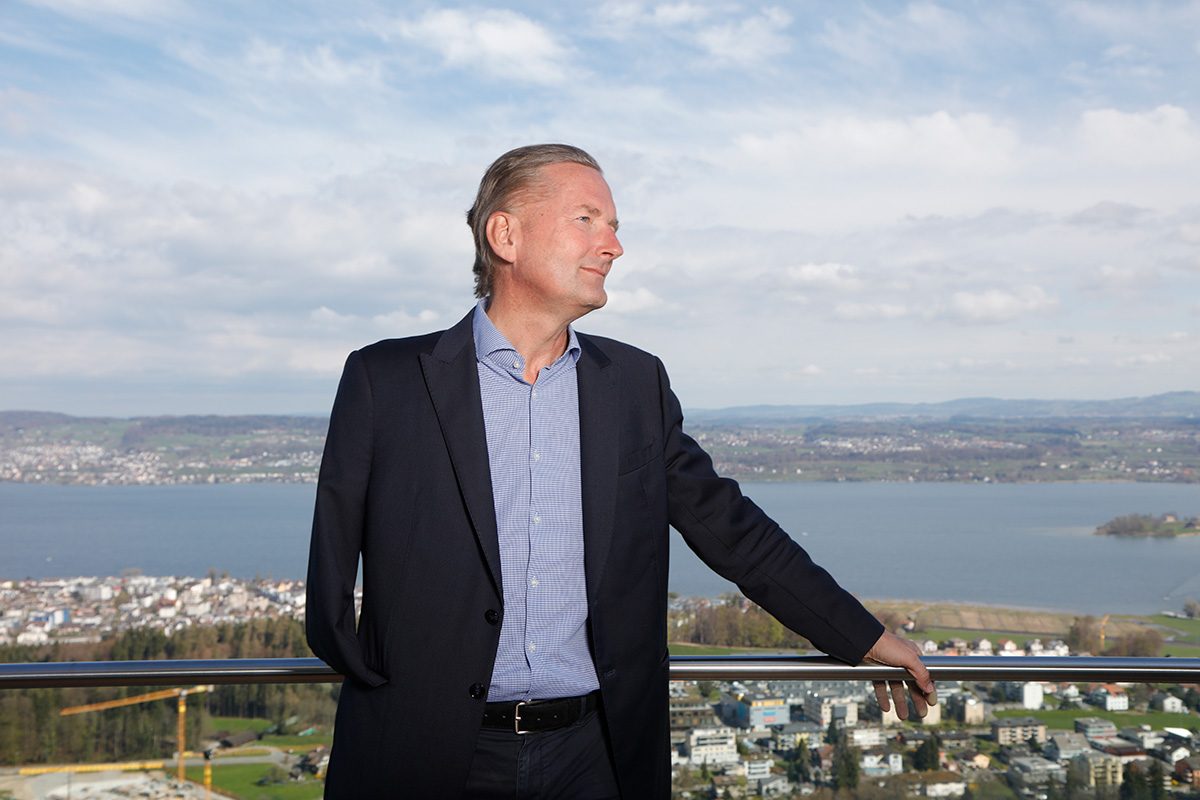
“He won’t make it!” Joachim Schoss, entrepreneur and investor
He stands out. With his elegance and his eloquence. His suave appearance is evidence of many years spent in the world of successful entrepreneurs. As the founder of Scout24 (Immoscout24, Autoscout24, etc.), Joachim Schoss, 55, is well acquainted with success.
There’s another reason he stands out: his right arm and right leg are missing, the result of a motorbike accident in South Africa. A drunk driver ran Joachim Schoss off the road on the last day of his vacation.
A successful entrepreneur, head of a family, and all-round good guy first losing his arm and leg, and then his job and his family, through no fault of his own – that would surely cause many a person to plunge into an existential crisis.
Joachim Schoss sees it differently. It’s his story and his life. And he’s made peace with it. Even though the doctors wanted to let him die. Even though the person who caused the accident never reached out to him. Even though at that time, he lost virtually everything he had loved and cared about.
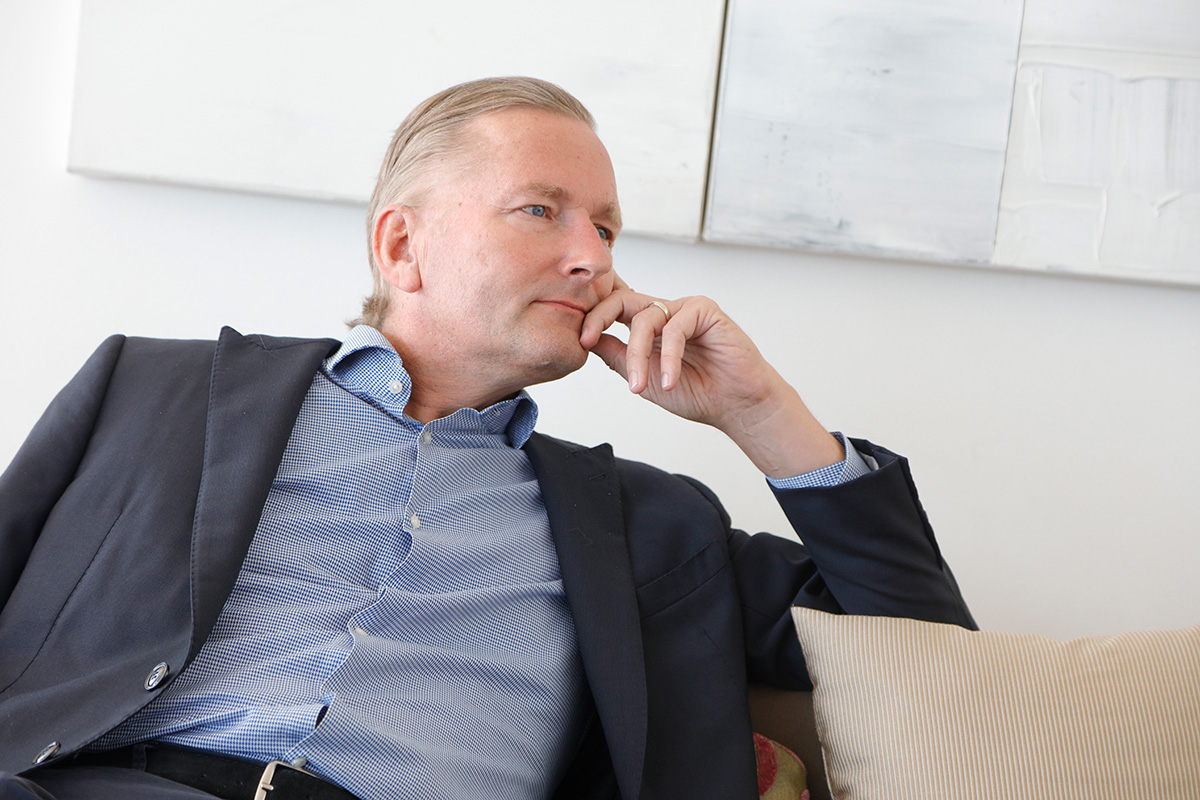
“It’s done now. The story is over.”
Anna Maier: I want to wish you a belated happy birthday since you turned 55 on Easter Saturday. How did you spend it?
Joachim Schoss: Surrounded by family and friends at our holiday home on Mallorca.
Do you mark some kind of day of remembrance, too, on the day your second life began in November 2002?
November 23, 2002 is the special day. I commemorated it very intensely for ten years. Especially since many people who were involved in the accident, such as the person who rescued me, would always contact me on that day and congratulate me on surviving.
Particularly the 10th anniversary. My wife brightened that day with – I think – 50 videos. She asked all kinds of people who were involved to record videos and then played them for me. That was a wonderful thing for me, so I also said then and there: it’s done now. The story is over. Let’s close the book now.
Since that time, I still get calls now and then on November 23, but my real birthday has since returned to being the most important day in my life.
What kind of images are burned into your memory? Do you have any memories of the accident?
No. I remember the morning and afternoon of that day. The accident happened at 5 p.m. In broad daylight, incidentally. My memories end about two hours before the accident and start again 48 hours later.
Other victims of accidents have told me that you sometimes recall things when you revisit the place of the accident. I’ve been there three times, but no memories came back.
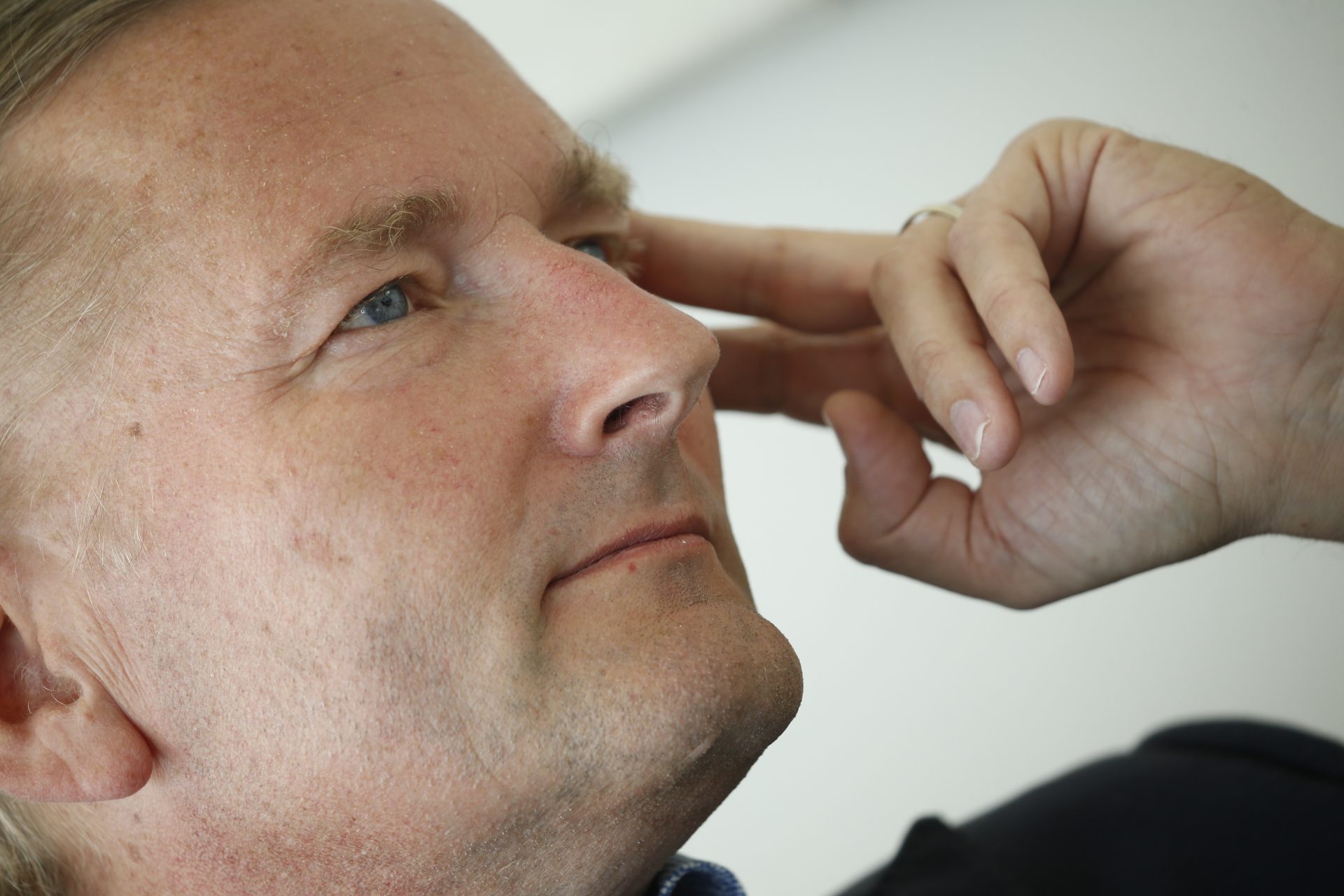
“I had nightmares that a child was hurt because of me.”
When I talk to my friend who saved my life, who was on the motorbike in front of me and then turned around and – I don’t know how much I should say here – first of all saw the motorbike boot with the calf and shin bones standing on the road, and still has nightmares to this day about how he saved my life, begging that I would make it or that he would, depending on how you see it… then I’m really happy that I don’t have these memories and can’t recall them.
How important is it to maintain your own emotional distance in order to be able to bear this kind of story?
Well, I wasn’t in a position to make that choice. My memory was gone and as such, it was very difficult for me to even understand what had happened to me. I had nightmares that a child was hurt because of me, which wasn’t ideal for the healing process.
Were they able to explain to you that no children were hurt? Were you able to rule that out?
Yes, luckily the people in the hospital asked the police to visit me in my hospital room and tell me the story. That it wasn’t my fault, but that the person in the oncoming vehicle was to blame.
When I spoke to my friends and family, all I would say was: it’s nice of you to try, but I don’t believe it. Then they showed me photos. It was only when I saw these that I finally understood that a drunk driver had veered into the oncoming lane and actually run me off the road and that no children had been hurt because of me.
“You can experience so much pain in a part of the body that’s no longer there!”
Can you remember the moment you woke up in the hospital, 48 hours later? What was going through your mind when you first realized what had happened?
Yes, on the one hand I remember my then wife looking at my shoulder in complete shock. You could see my ribs, because everything had been torn away.
I can remember that I couldn’t believe my right leg was missing because I had such unbelievable pain in my foot and my ankle, and I wasn’t aware of the concept of phantom pain back then. I thought: if it hurts this much, then this part of my body has to be there. Then I asked all the women who came to visit me to place their compact mirrors near my stump so I could understand that the thing that was causing me such endless pain was actually no longer there.
I was much more fascinated by the fact that you can experience such pain in a part of the body that’s no longer there than shocked that almost my entire right leg had come away from my body.
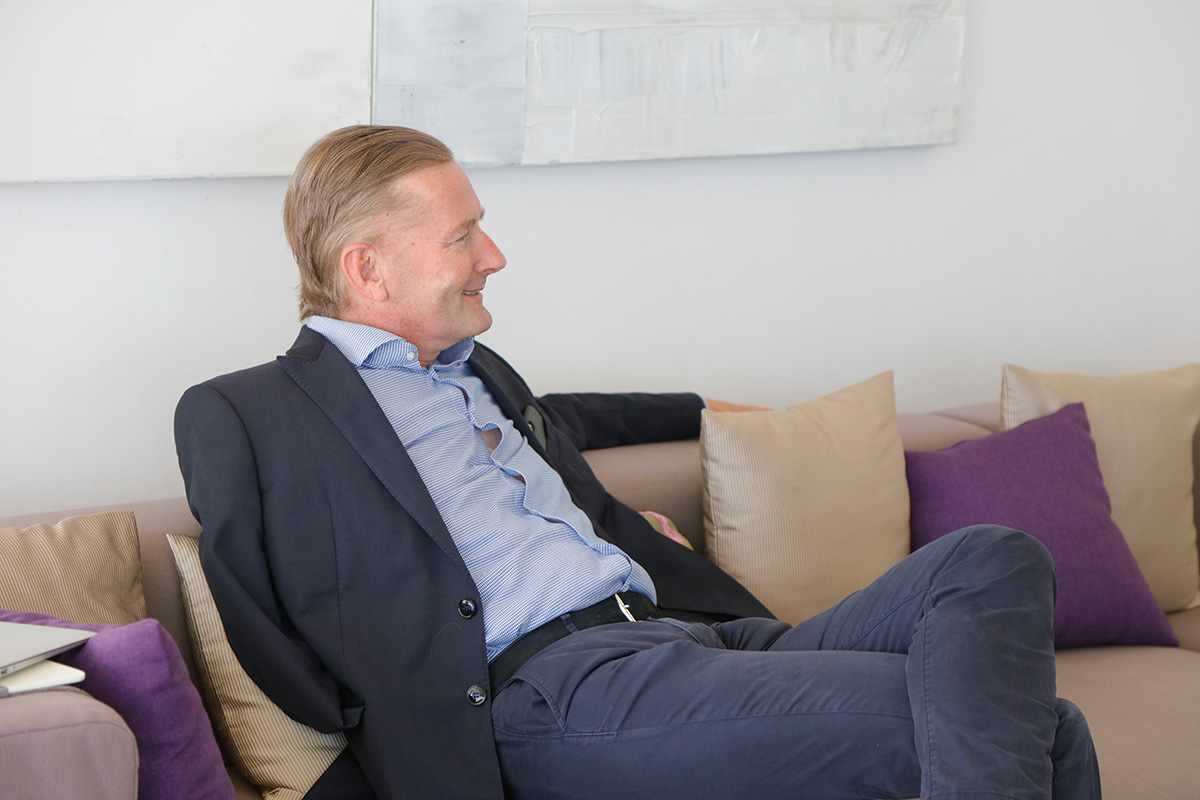
You needed 60 liters of blood. The doctors didn’t expect you to survive. At this point, you had a near-death experience. What exactly did you see?
It wasn’t on the day of the accident. I had a seven-hour operation then, and the surgeons certainly did the very best they could. But my condition was getting worse and worse, complete kidney failure, collapsed lung, you name it.
Three weeks later was the night I actually died and the doctors stopped working on me because they believed I couldn’t be saved.
“I could feel my three children, who were begging for me to stay.”
In that moment, I experienced what I could only identify as a near-death experience after the fact – and I had never faced that in my life up until then either. I entered a dark tunnel that had a very warm, welcoming light at the end. It exerted a very strong pull on me.
At the same time, the doctors in the operating room stopped working on me and were cleaning up their workstation. And in those – I still don’t know whether they were seconds or minutes, my life flashed before my eyes, particularly the people I had known.
I could sense my children very strongly. There were three of them at the time, and they were still very small. They were begging for me to stay. In the condition I was in, I had a very strong feeling that they wanted me to keep being there for them. That led me to stop and consider the situation I was in, at the very least.
Then a fourth person entered the operating room and told the three doctors who had given up working on me to give it one more try. The operation, which had failed the first time, then worked, to everyone’s surprise, and I was back.
And it turned out afterwards that that’s exactly how it played out?
Yes.
“What kind of human value have I left behind?”
In an interview, you said that the accident was “the most valuable experience” of your life. Is that also an attempt to accept this situation, one that might have thrown many others into a dark pit of despair?
(laughing) I wouldn’t say it’s the most valuable thing that ever happened to me. Maybe the near-death experience, but certainly not losing an arm and a leg and every possible internal organ. But the good thing that happened to me is that my priorities in life changed. I have to be very clear about that.
When I think about the main focuses of my life before the accident, then it was really about making a success of Scout24, the third company I’d set up, by the way. I was completely immersed in business and worked very hard for it. In terms of priorities, everything else came a distant second.
In dying, what I realized was this: there is nobody who then says I wish I had set up more companies or earned more money. When you’re dying, it’s much more about what kind of human value you’ve left behind, not what kind of commercial value you’ve left behind.
In that respect, this near-death experience was probably the best thing that happened to me in that it gave me the opportunity, at age 39, to begin a second life with different priorities.
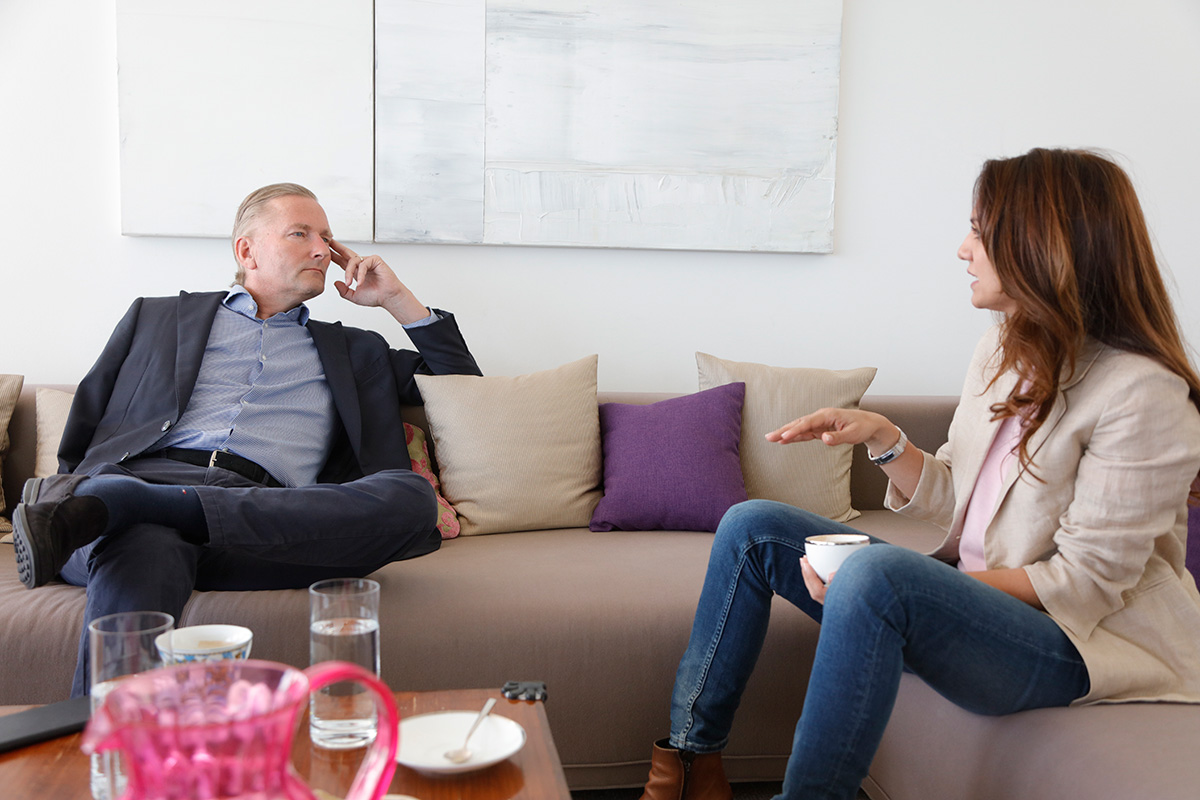
You mentioned your children. There were three of them when the accident happened. The youngest was one-and-a-half years old. How did they react to your being bedridden?
They were very supportive. The little one always wanted to be with me, which was strictly forbidden, because I had five tubes in my arm that were even strapped to me so I wouldn’t pull them out by accident.
That meant he couldn’t physically have access to me, which was very hard to explain to him, as he was 17 months old then. That was hard, later, too, because he always wanted to be in my arms once I could stand again with my prosthesis. Today I can manage it, but back then I was much too weak to pick up a child.
“Something I recommend to all parents: try making yourself dependent on your small child once in while.”
Now you could also view the situation through the child’s eyes: physically, you ended up on his level.
Yes, that’s true! And that might be interesting for all parents, too: if you can’t hold your child, but can only raise them with words, then you can still achieve an unimaginable amount even with a two-year-old.
In the beginning, of course, I was quite immobile. I spent six months in hospital and then I came home, and even there I spent 80% of my time in bed. For example, if I forgot to bring a bottle of water with me into the bedroom at night, he was the one who, at two years of age, ran to the kitchen on the next floor down and brought me a bottle.
So we came up with a saying: “Together, we can achieve anything.” As my two-year-old – of course – needed his father, but at that time, I also really needed him. That was a wonderful experience for both of us, which I can recommend to all parents: make yourself dependent on your small child once in a while and give them the sense that they are important in their parents’ lives.
Did this situation fundamentally and permanently change your relationship with your son?
Yes, I think so. We certainly have a different, special relationship.
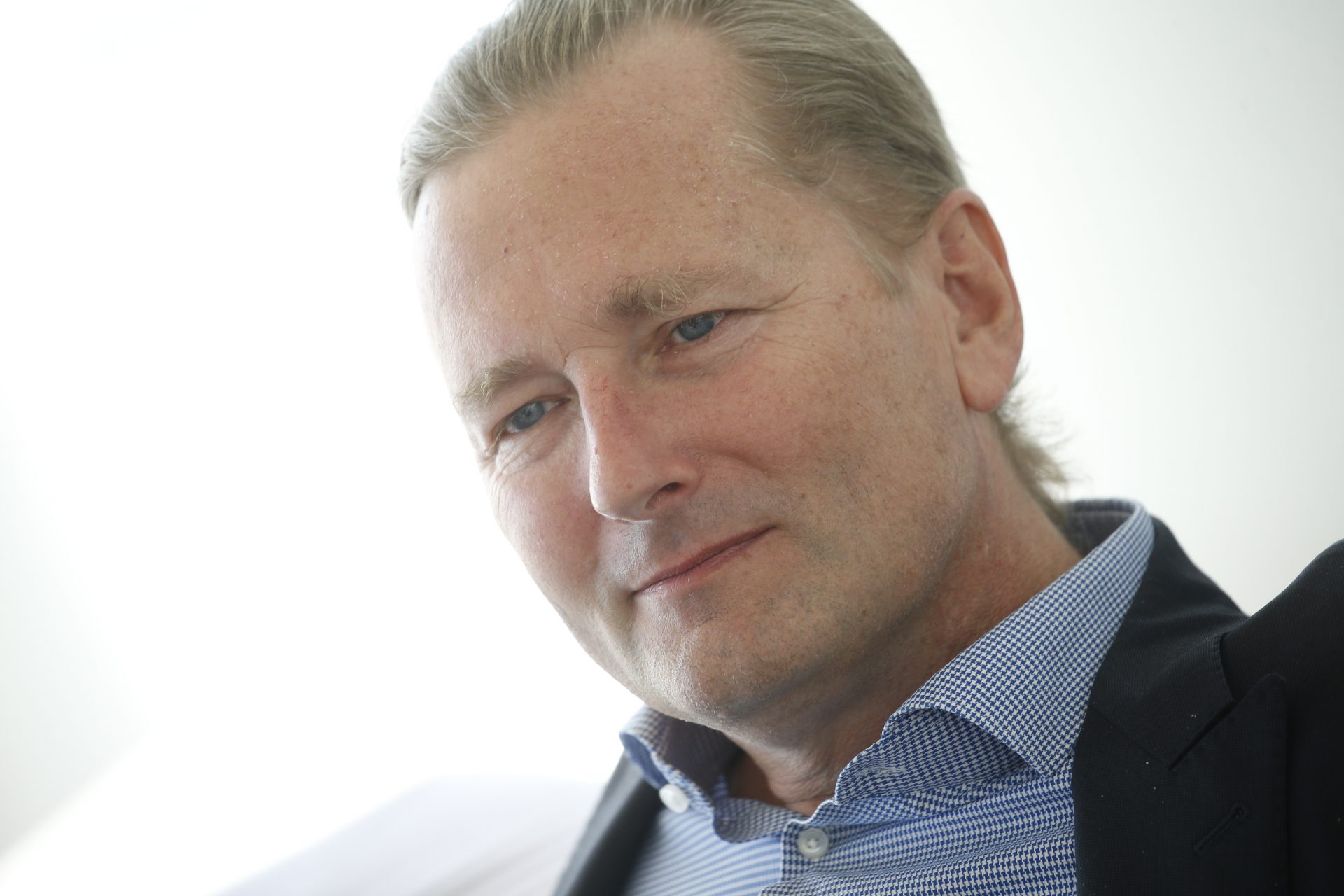
You must have had an incredible will to survive if the doctors didn’t even believe in you any longer and you survived nevertheless. What’s your explanation for having been able to summon the strength to come back?
I’ve also thought about that a lot. Not about myself, but about other patients I’ve seen who don’t or didn’t have the same will.
That was one of the reasons why I set up the “MyHandicap” foundation. Back then, I came to understand that God gives out will the same way he might give out eye color or physical size or strength.
God gave me the gift of my strong will. It helped me to build a company and to survive this situation.
But they also say that a patient heals more quickly when they are motivated. That’s something you need not just when you’re sick, but in life, too. Did the lack of support change how you deal with people who are facing difficult situations?
Yes, absolutely. Specifically, the way the doctors treated me frustrated me enormously – and still does. But of course, that happens to thousands of other patients, too – when they’re simply given average prognoses.
You have a 5% chance of survival, you no longer have any chance of survival, you have six months to live, and so on and so forth.
“We don’t stand a chance!”
The doctors I talk to about this always insist that they have to tell patients the truth. My reply is this: Please tell them that an average patient with their diagnosis has six months to live, but with a little luck, THEY can live another 30 years. Or say: “Yes, your chances of survival are almost zero right now – but someone like you can make it!”
Funnily enough, one of the nurses said to me: When you were admitted and I saw how you looked, I thought you were going to make it, although your condition was awful. I’d really like that kind of motivation from doctors.
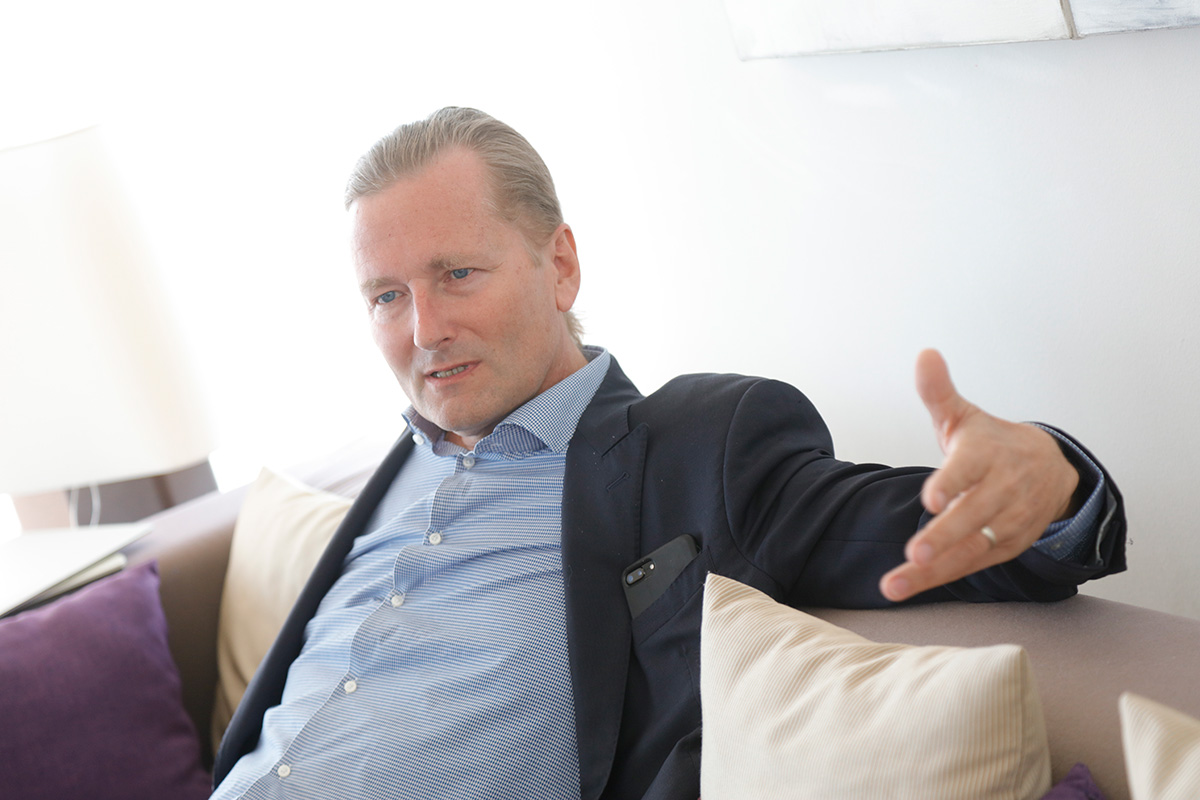
I know of cases where endless energy and effort goes into saving people who then end their own lives at the first opportunity because they simply don’t want to go on living with a severe disability. And vice versa, people who really want to live but who are virtually sacrificed with the sentence: “There’s no way he’s going to make it.” That really can’t be allowed to happen.
While you were struggling in convalescence for months, Scout24 was sold to Deutsche Telekom. The company that was your life before the accident happened. Do you struggle now with the fact that it was sold during this period?
I had other problems. But when I look at it from the perspective of 2018, it was the wrong time, of course. And if I had known just how strong my comeback would be, I would certainly have wanted and been able to get involved again. But everything is fine how it is, and in that situation, it was about something different – it was about pure survival, really.
“I went to bed at night wondering whether I would wake up in the morning.”
You mean you could let go because you had to?
Yes, maybe I should explain it: for weeks, I went to bed at night wondering whether I would wake up in the morning. You ask yourself all kinds of fascinating questions. That’s one of the main reasons I talk about these things in the first place, because I hope that other people can have the experience without having to lose their arm and leg. That other people can learn something from my pain.
Before you go to bed tonight, try to imagine that you don’t know whether you will wake up tomorrow. It would be your last day. Or as far as I’m concerned, you’ve got two more days. What would you do with them? Would you spend the next day the same way as the last one hundred? Or would you change something?
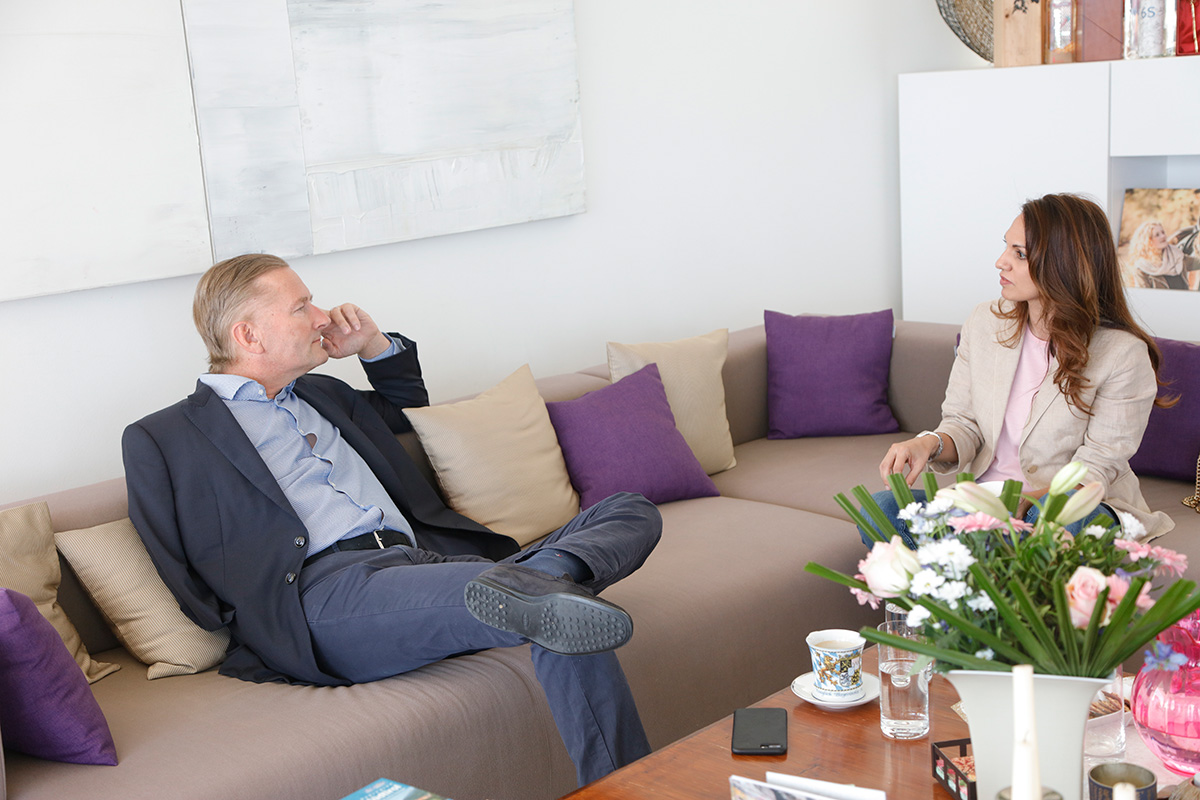
In the last few minutes of your life, you’re not thinking about how successful you were. How much the companies you set up are worth. You’re thinking, what kind of person was I? What kind of colleague, brother, son, partner, father and so on.
Of course, I do catch myself, 15 years later, putting a lot of my energy into these things again. They are fun, and they’re validating, but maybe in the grand scheme of things, they aren’t always as important as we make them out to be.
Your marriage collapsed after the accident. What would you recommend to a couple who find themselves in the same situation, suddenly confronted with an extreme event, to get through it?
I think it’s a very personal thing. It really depends on fate, too. A wise friend of mine said: It either brings you closer together or it breaks you apart – I think there’s a lot of truth in that. In these exceptional situations, a lot of relationships break up and it’s certainly helpful just to recognize that and not to have to make a whole different story out of it.
What did someone leaving you at this moment of great vulnerability do to you?
What doesn’t kill you, makes you stronger, right? And I’ve found a wonderful new wife.
“There was my scar, the size of a palm, and she kissed it.”
How did you meet her? Can you tell me?
Yes, I can. So it’s very intimate (laughing). I have a silicone shoulder, because my entire right arm is gone. It doesn’t look particularly attractive under here, and the first time I went swimming with my current wife, I left my prosthetic shoulder and my T-shirt on, simply because it doesn’t look very nice.
Then I lay down on the lounger and kept my shirt on, and she said: hey, you can’t lie down next to the pool now in your wet things. I said to her: it doesn’t look so nice. She just said: I’m a doctor’s daughter, I can handle it.
So I took off my shirt and there was my scar, the size of a palm, and she bent over and kissed it. That was one of the most healing moments in the whole story of my illness – feeling that I was attractive again.

She has since become your wife and you now have five children. In every respect, we can truly say that you’ve been given a new life. Today you take care of other people in similar situations. That’s why you set up the platform MyHandicap. What is it for?
First of all, you have to understand my situation: up until the day of the accident, I worked a lot and very hard and was never particularly cash-rich as an entrepreneur, since I always reinvested all my money. So up until the accident, I had very little money in my hand, and I had even less time.
As a result of the accident and the sale of the company, I suddenly had lots of time and a relatively large amount of money, so I told myself, now you have to do something new, something meaningful. It was obvious that I had to build something using everything I had experienced around me – such as the lack of motivation in patients – something that addressed a few of these ills.
“I had to pull my pants down to prove I was an upper-limb amputee.”
For example, the foundation offers a service where you can call a person who has been affected, and they can go to the hospital and visit someone who has had something similar happen to them. We always try to send someone who has a similar injury.
So, for example, I go to visit people whose legs have just been amputated. You don’t have to do much after that. Of course, I leave my crutch outside the room. When you walk into the room relatively happy, calm and upright, that really helps the victim of a recent accident imagine how they might also end up like that again.
Once I even had to pull my pants down to prove that I was an upper-limb amputee, because someone couldn’t believe it. Just three days after the accident, and I know this all too well from my own situation, you think life is over: you’ll never walk again, you’ll never drive again, you’ll never work again.
Some of these films that play out in people’s heads are very, very negative, and we try to reach them as soon as possible after something like this has happened to them, and just show them how things can turn out a few years later, to give them perspective: In three years, you too can walk back into a room in such a way that other people won’t believe that you’re an upper-limb amputee.
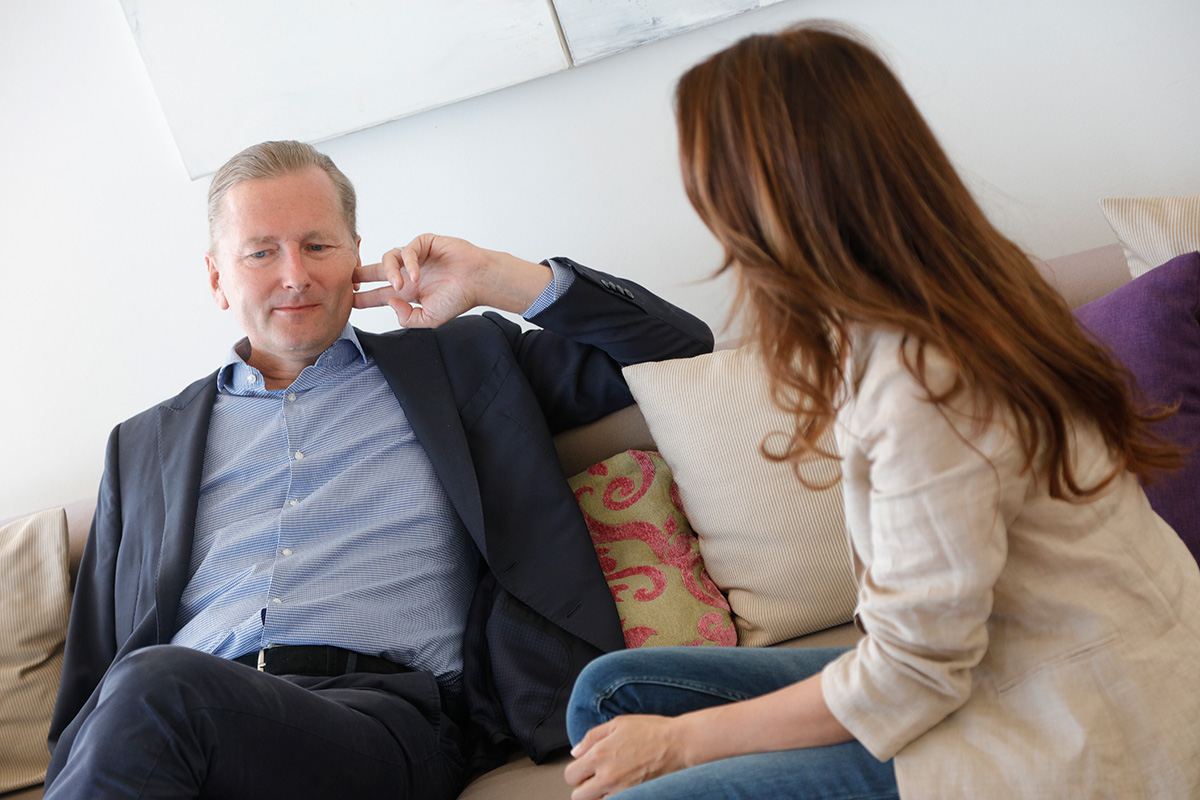
The hope that’s really needed in that instance.
Yes. As someone who has already set up a few online portals, I couldn’t believe that there wasn’t one for this target audience, in particular, an audience that has a great deal of use for the Internet – people with disabilities, people with restricted mobility, who can continue to live wonderful, active lives via the Internet.
And so it was almost an entrepreneurial impulse that helped me to see the problem and say, OK, this is the new thing I want to tackle. As I now have money and time in any case, I somehow have to find different ways to spend my time.
“How do you feel about meeting Bill Clinton?”
Bill Clinton came to open your Center for Disability and Integration at HSG St. Gallen in 2009. Is he a friend?
Yes, friend might be stretching it somewhat. The Americans always say “my friend,” he certainly says it…
A friendly acquaintance, shall we put it?
Yes, a friendly acquaintance. I’m a member of an international organization, the YPO, or Young Presidents’ Organization. It’s good form there to help each other.
An American YPO member was looking for an apartment in Zurich for his sister to live in for a while. And since I was single at the time but still living in a 800 square-meter place, I said, no problem, she can have an apartment.
Six months later, this colleague came to Zurich and wanted to meet me for a coffee, and he asked: what can I do for you? I said: I’ve got everything I need, thanks (laughing). Then he said: You’ve got your foundation. I helped Bill Clinton out in an election campaign. How do you feel about meeting Bill Clinton?
And you thought, yeah, whatever …
No, no, it was clear he was being serious. I said yes, and thought it could be great to meet Bill Clinton. It happened four weeks later at the London School of Economics, and I found out that Bill Clinton had also had a near-death experience, and so our conversation immediately got off on the right foot.
Bill Clinton is someone who really shows an interest in people. I think many people get the feeling that they’re on a good footing with him. Then he said he thought what we were doing with MyHandicap was great – and that if he could help me, he would do so gladly.
I then had to stick entirely to his schedule; he was catching a flight from the former Yugoslavia to Spain and was just able to manage a two-hour layover in Zurich. He quickly stopped off at St. Gallen to give the opening speech, and that was it – a great success.
Are you still in touch?
Yes.
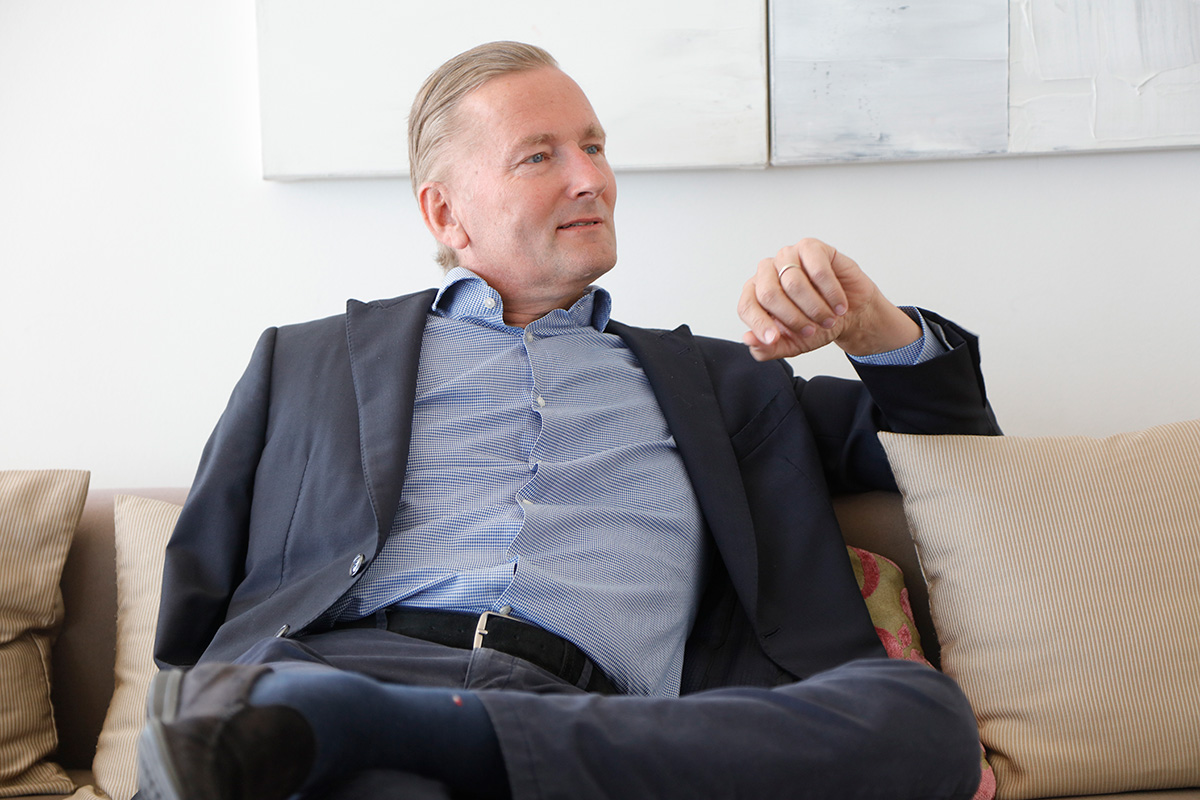
“The drunk driver who caused the accident never got in touch.”
Talking to you, you seem very positive, as if you are embracing life and have accepted your own. What has prevented you from sinking into a depression, and why have you never had to seek psychological help?
The team of doctors who handle cases like mine, which is about a dozen strong, automatically includes a psychologist. So there was always someone available to me, but I actually never really needed him.
I don’t know why. Instead, I would have preferred the question: “Why do we get depressed?” in order to deem the question of why we don’t become depressed appropriate. I don’t want to say, “just because of losing a leg,” but I was always full of life. And I always wanted to live. And for me, the question was always just: how can I get back on my feet?
Were you ever in touch with the drunk person who caused the accident?
Interestingly, he never got in touch.
And you didn’t feel the need to get in touch with him either? Perhaps it would have sped up the healing process?
For me or for him? (laughing) No. If I had been the person who caused the accident, I would have been completely tormented by it. I would have needed to meet the person. And I think he must actually need it, too. Maybe, but then maybe not. Maybe he doesn’t really care. Particularly since I was there for two months. So it wouldn’t have been a big deal for him to drop by the hospital.
How did the fact he never got in touch make you feel?
If he were to sit here now and say, I did it, I would gladly get to know him personally. And I’d be happy to listen to him if he came here and told me what it had been like for him.
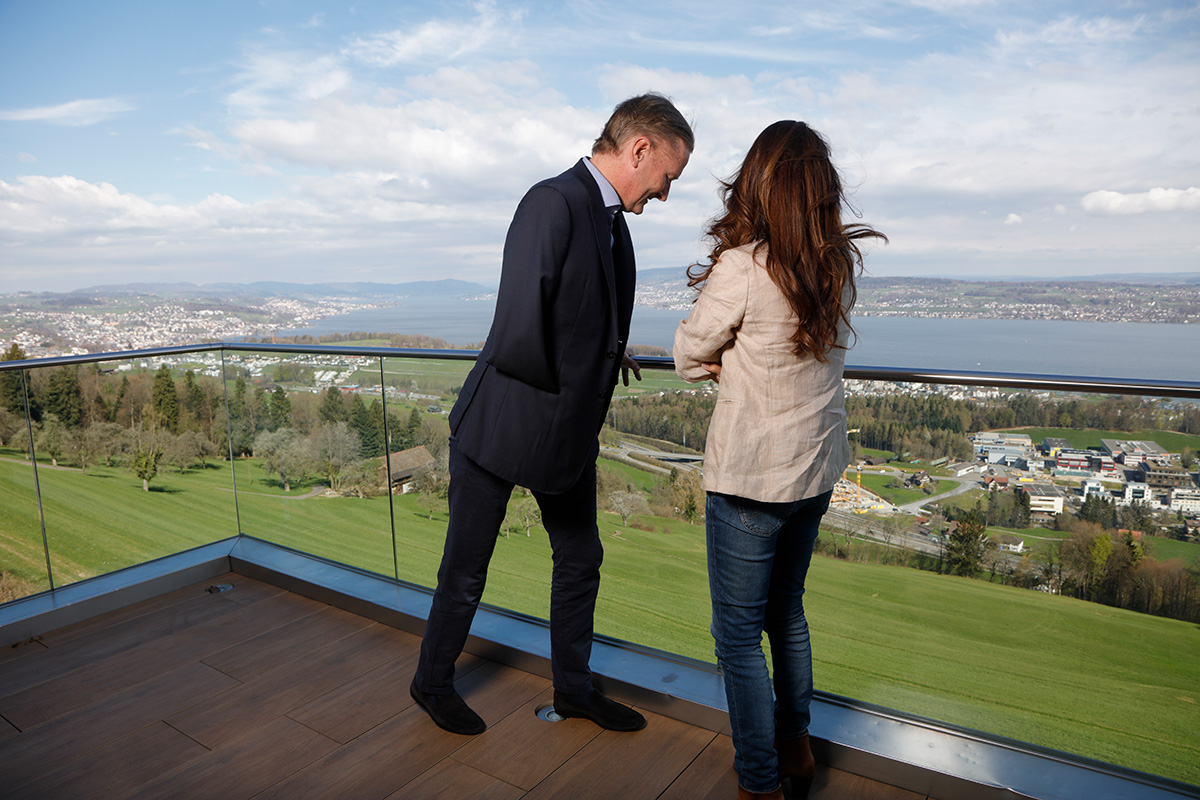
“What am I going to do with the rest of my life?”
Do you have goals you still want to achieve?
That’s changed, too. Before the accident, I certainly spent a lot of time living in the future. Now, I spend a lot more time in the present, and trying to make the best of it. Fortunately, I have a happy family, which was a major goal of mine. It can carry on as it is. I’m very content.
There’s just one thing: at 55, I’m definitely at a point where I’m asking myself: What am I going to do with the rest of my life? I’m waiting, more or less, to see what happens next. I’m still in business, but I don’t get a lot of added value from it.
For example, sitting around the dinner table one day with my wonderful family, a grandfather with five children and 15 grandchildren. That’s an image that’s very pleasant to imagine.
One more question on the subject of death. In my experience, many people are afraid of death. Before this blow, were you afraid of death and to what extent has your relationship to it changed?
Yes, that’s a very good question. Was I afraid of death before? I always used to believe that I wouldn’t live for a long time. Since the accident, I believe I’m going to live to 100. So that was clearly a hunch I had about this experience, albeit with a totally different outcome.
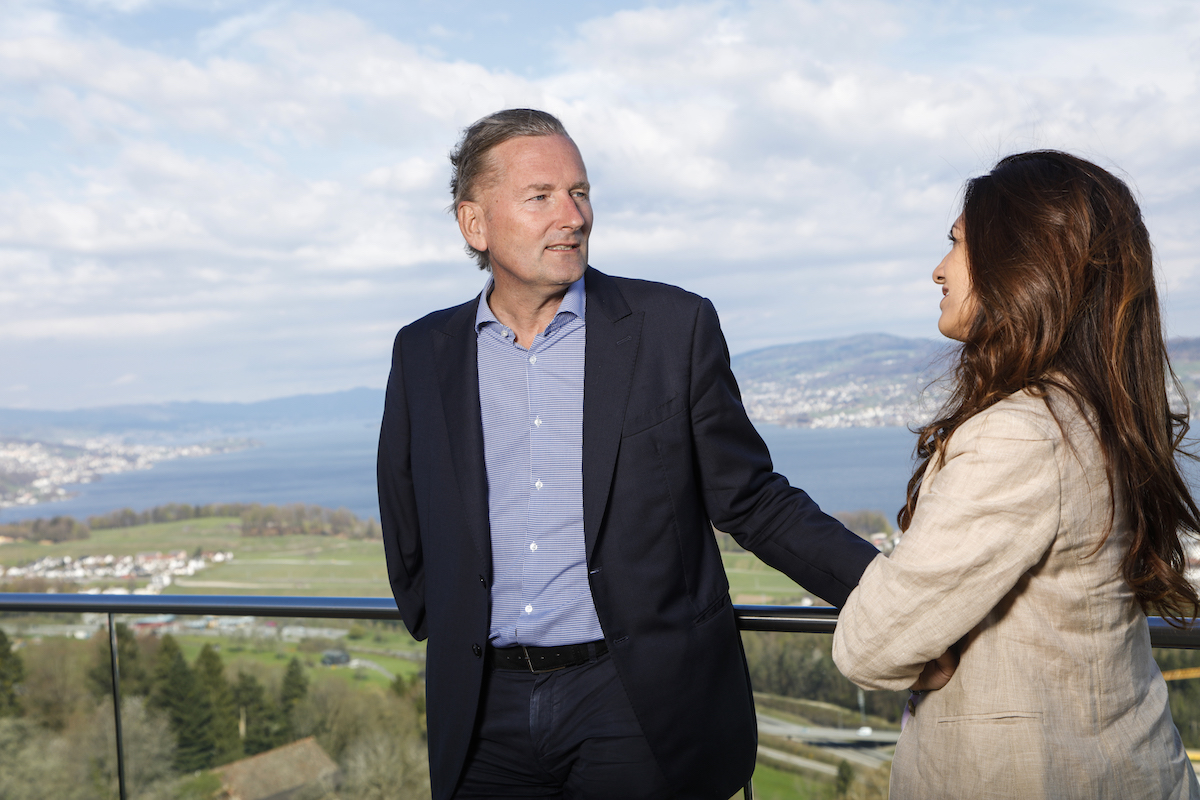
With my near-death experience, I learned that there’s a pleasant side to death. Whatever is waiting at the end of the tunnel, if you were to keep going, seemed very appealing. That’s why I don’t think anyone should be afraid of death. It’s a shame for those who are left behind. They mourn the person who has gone, but the person who has left them might have a better fate.
Would you like to write a book about your life? Have you written a biography?
Maybe at 75, but not at 55! (laughing)
Images: Jessica Kassner
Newsletter
Subscribe to our newsletter and you'll get notified every time a new article is online.

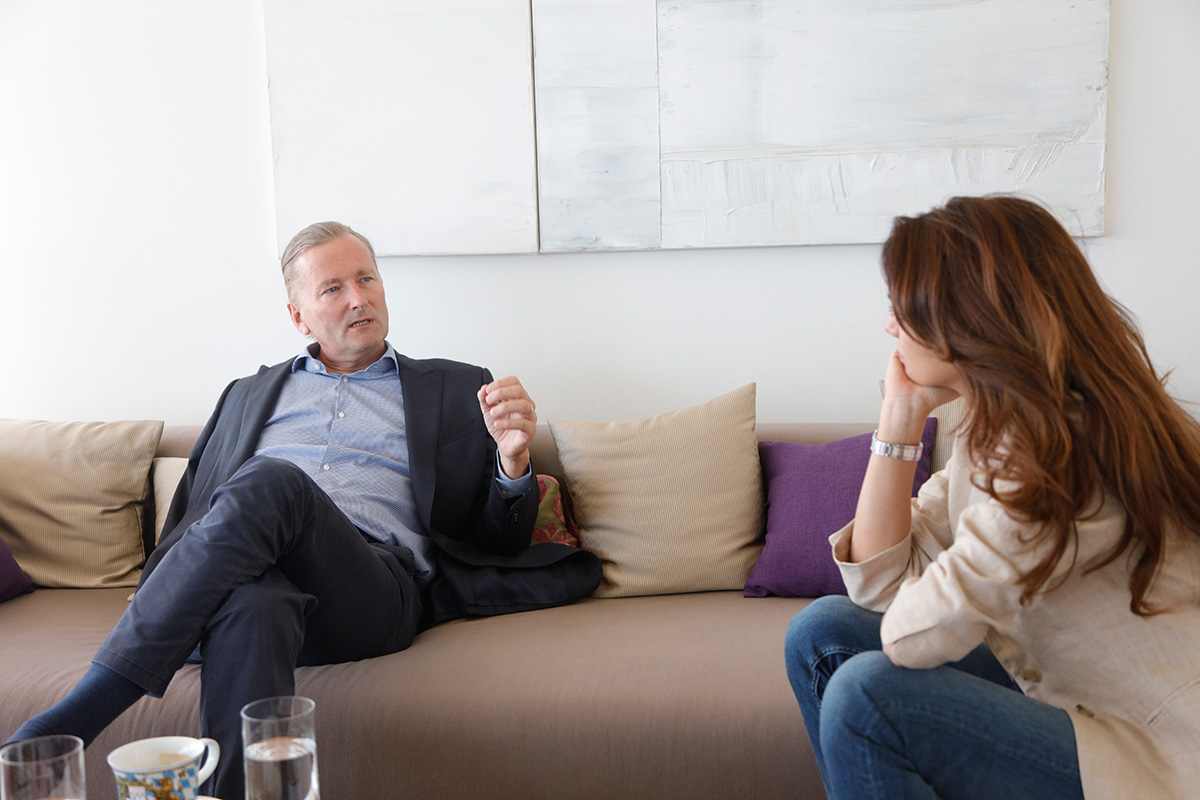
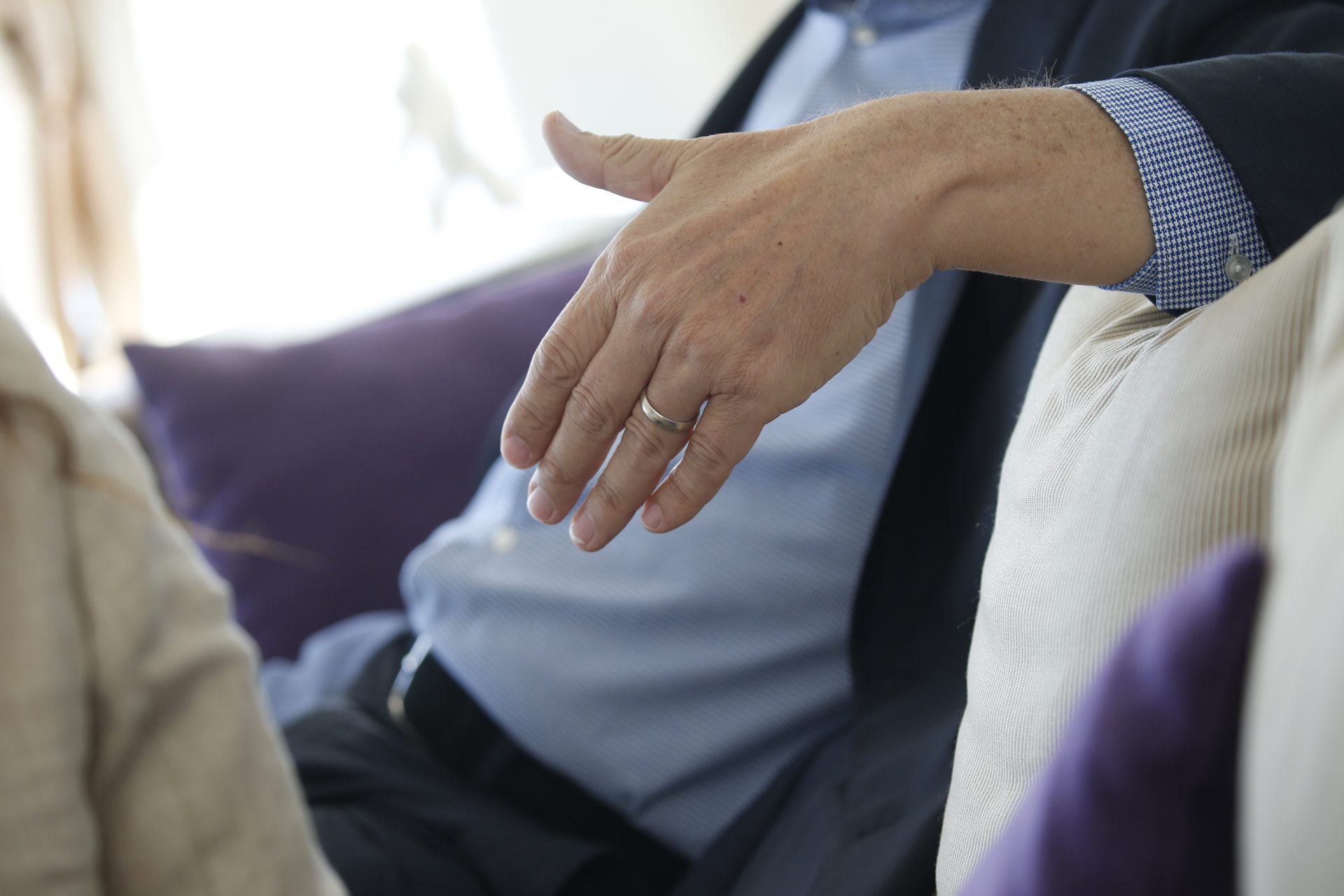
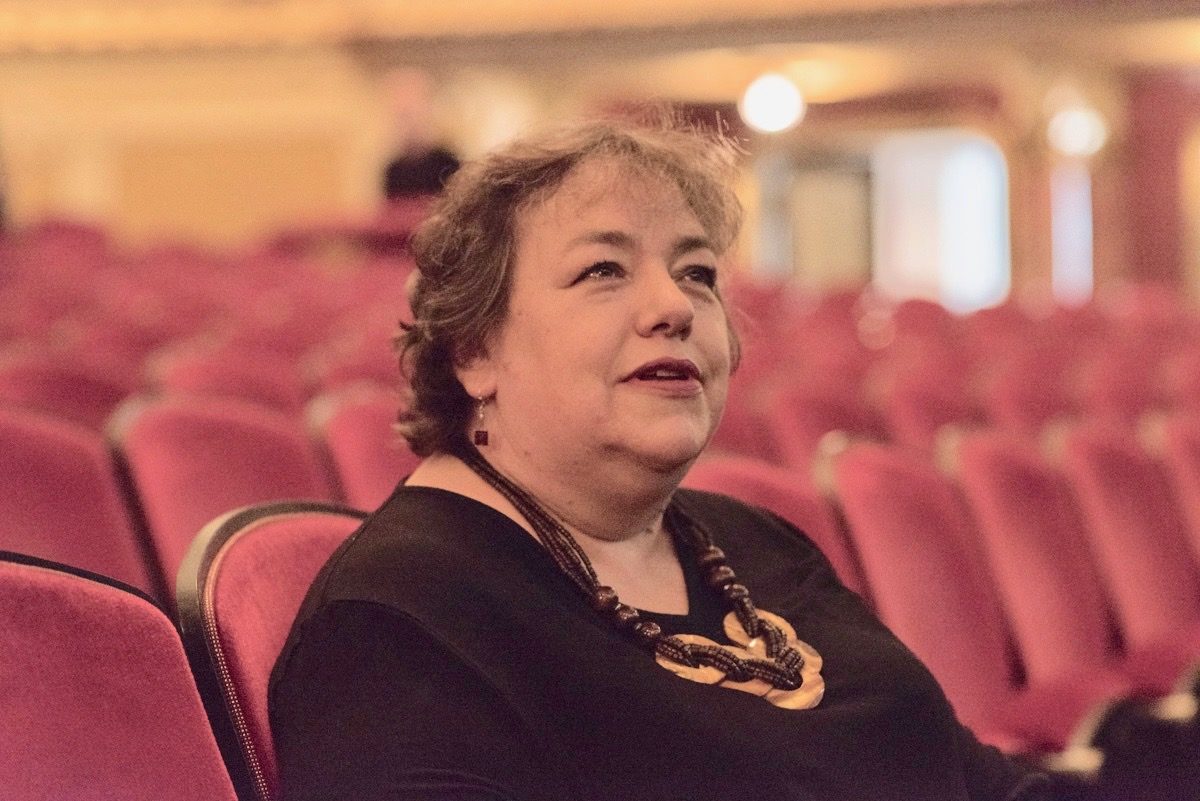
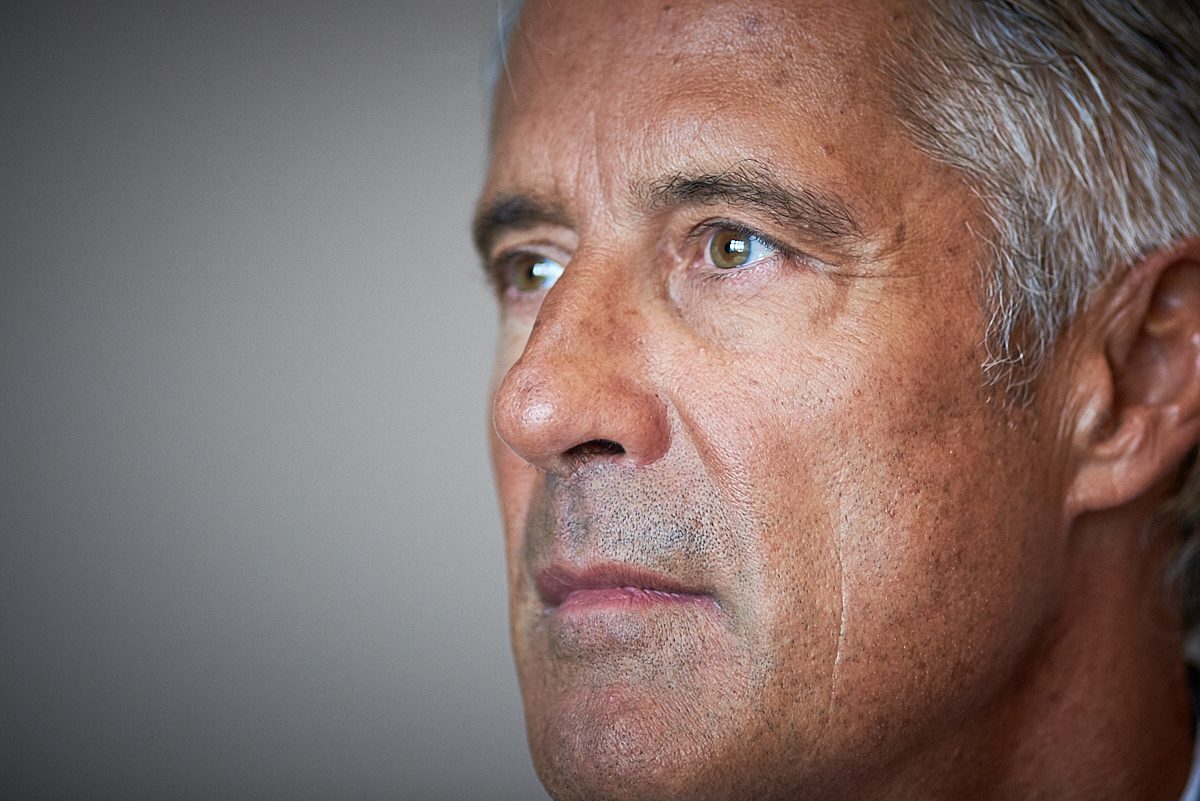
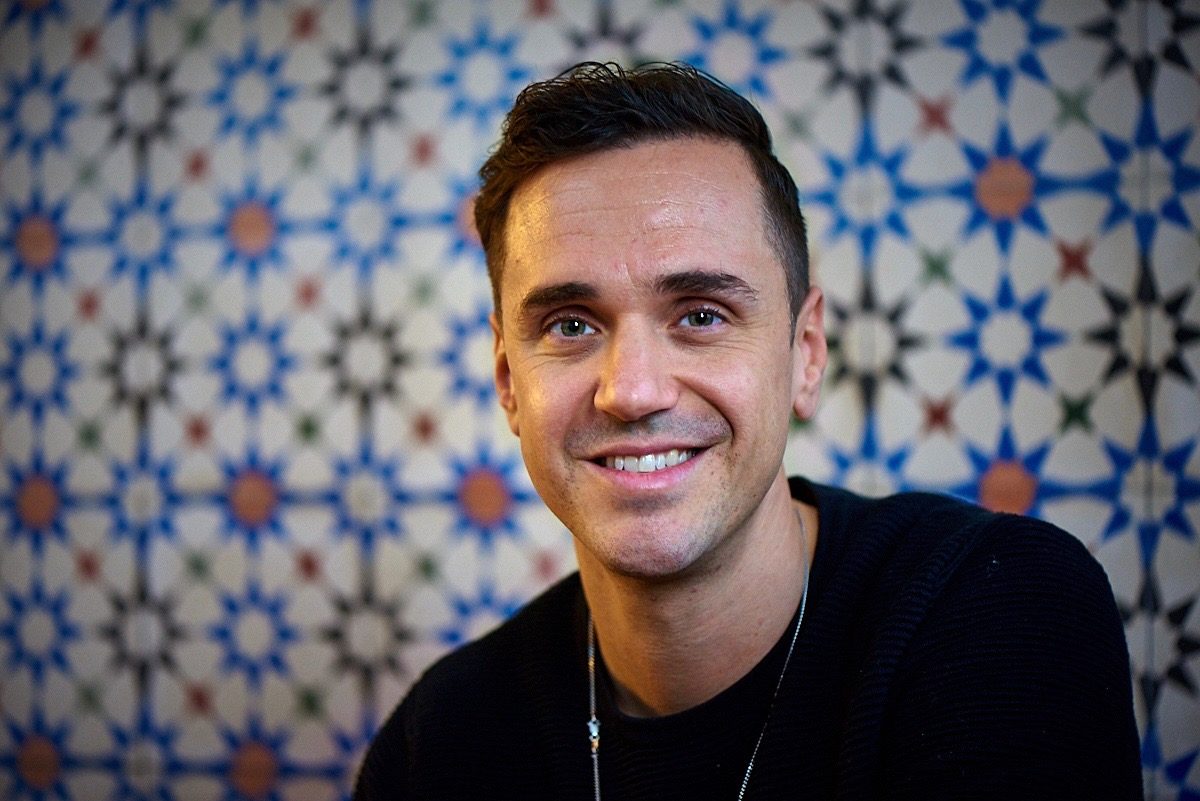
Frantz
Really really really interesting and deep